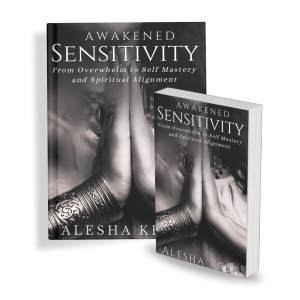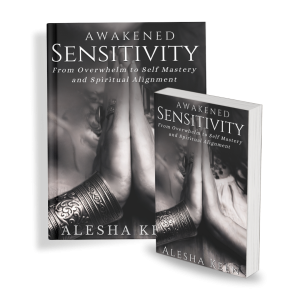
Self-worth and self-esteem, though often used interchangeably, are fundamentally different concepts. Understanding these distinctions is crucial in fostering a healthier relationship with oneself, and Brain Working Recursive Therapy (BWRT) can play a significant role in this journey.
Self-Worth vs. Self-Esteem
Self-worth is the intrinsic value you place on yourself. It’s an unwavering belief in your inherent worthiness, regardless of your achievements or failures. This sense of worth is stable and not influenced by external factors. On the other hand, self-esteem is more about how you feel about yourself based on your actions, achievements, and how others perceive you. It’s more fluid and can fluctuate depending on circumstances and external validation.
Self-worth is about acknowledging that you are valuable simply because you exist. It’s about recognising that your value does not diminish because of setbacks or mistakes. In contrast, self-esteem can be thought of as a reflection of how you judge your worth based on your achievements, successes, and the approval of others.
Factors Affecting Self-Worth and Self-Esteem
Various factors influence our relationship with ourselves, impacting both self-worth and self-esteem. Childhood experiences, societal standards, relationships, and personal achievements all play a role. Early experiences, in particular, can leave a lasting imprint, shaping how we view ourselves and our value. Negative experiences, such as criticism, neglect, or trauma, can erode our self-worth and lead to a fragile self-esteem.
Our internal dialogue and thought patterns also significantly affect how we perceive ourselves. Persistent negative thinking, self-criticism, and internalised societal expectations can perpetuate feelings of inadequacy and unworthiness. These negative thought patterns not only affect our relationship with ourselves but also shape our interactions with the world and our relationships with others.
The Importance of Self-Perception
How and what we think about ourselves shapes our experiences and interactions. A positive self-perception fosters confidence, resilience, and healthier relationships. When we believe in our intrinsic worth, we are less likely to seek external validation and more likely to set boundaries, pursue our goals, and engage in fulfilling relationships. Conversely, a negative self-perception can lead to self-sabotage, anxiety, and unhealthy relationships.
Self-worth acts as a foundation upon which self-esteem can be built. When we have a strong sense of self-worth, we are better equipped to handle failures and setbacks without letting them define us. This resilient mindset allows us to maintain a positive self-esteem, even in the face of challenges.
How BWRT Can Help
Brain Working Recursive Therapy (BWRT) is an innovative form of psychotherapy that can effectively address issues related to self-worth and self-esteem. BWRT works by accessing the brain’s natural processes to create rapid and lasting changes in thought patterns and emotional responses.
Releasing Negative Thinking
BWRT helps in identifying and releasing negative thinking patterns that undermine self-worth and self-esteem. Through specific protocols, BWRT allows individuals to reprocess past experiences and memories that have contributed to their negative self-view. By addressing these root causes, BWRT helps in diminishing the emotional charge associated with negative memories, leading to a more positive self-perception.
Transformational Power of BWRT Level 2: Self-Identity
BWRT Level 2, focusing on self-identity, is particularly transformative. This advanced level delves deep into the core beliefs and perceptions we hold about ourselves. It helps in reshaping these beliefs, aligning them with a more positive and empowering self-view.
During BWRT sessions, individuals are guided to create ‘Future Memories’—visualisations of themselves in future scenarios where they feel confident and self-assured. This technique not only helps in reinforcing positive self-beliefs but also conditions the brain to adopt these new, healthier thought patterns. By consistently reinforcing these new patterns, BWRT helps in establishing a more robust and resilient sense of self-worth and self-esteem.
BWRT is also effective in addressing resistance to change. Often, deeply ingrained negative beliefs can create resistance, making it challenging to adopt new, positive self-views. BWRT techniques, such as the ‘Resistance Buster’, are designed to overcome this resistance, ensuring that the therapeutic process is smooth and effective.
In conclusion, understanding and nurturing self-worth and self-esteem are vital for a fulfilling and balanced life. BWRT offers a powerful and effective approach to transforming negative thinking and fostering a healthier relationship with oneself. By addressing the root causes of low self-worth and fragile self-esteem, BWRT empowers individuals to embrace their true value and potential, leading to profound and lasting personal growth.
now can you also give some daily tips to support self-worth and build positive self esteem
Daily Tips to Support Self-Worth and Build Positive Self-Esteem
Cultivating self-worth and building positive self-esteem is an ongoing process that requires daily attention and practice. Here are some practical tips to help you on this journey:
- Practice Self-Compassion
- Tip: Treat yourself with the same kindness and understanding that you would offer to a close friend.
- Action: When you make a mistake or experience a setback, instead of criticising yourself, acknowledge your feelings and remind yourself that it’s okay to be imperfect. Practice saying compassionate phrases like, “It’s okay, everyone makes mistakes,” or “I’m doing my best, and that’s enough.”
- Set Realistic Goals
- Tip: Break down your goals into smaller, achievable steps to avoid feeling overwhelmed and discouraged.
- Action: Each day, set one or two small, attainable goals. Celebrate your progress, no matter how minor it seems. This will help build a sense of accomplishment and boost your self-esteem.
- Engage in Positive Self-Talk
- Tip: Replace negative self-talk with positive affirmations and constructive thoughts.
- Action: Start your day with positive affirmations such as, “I am worthy,” “I am capable,” and “I deserve good things.” Whenever you catch yourself thinking negatively, consciously replace those thoughts with positive, encouraging ones.
- Take Care of Your Physical Health
- Tip: Regular exercise, a balanced diet, and adequate sleep can significantly impact your mood and self-perception.
- Action: Incorporate physical activity into your daily routine, whether it’s a brisk walk, yoga, or a gym workout. Aim to eat nutritious meals and establish a regular sleep schedule to ensure you’re well-rested and energised.
- Surround Yourself with Positive Influences
- Tip: Spend time with people who uplift and support you.
- Action: Identify and nurture relationships with individuals who make you feel valued and respected. Limit time spent with people who are critical or negative. Surround yourself with positivity and encouragement.
- Celebrate Your Achievements
- Tip: Acknowledge and celebrate your accomplishments, no matter how small they may seem.
- Action: Keep a journal where you note down your daily achievements and positive experiences. Reflect on these entries regularly to remind yourself of your progress and strengths.
- Engage in Activities You Enjoy
- Tip: Spend time doing things that make you happy and fulfilled.
- Action: Make a list of activities that bring you joy and schedule time for them in your daily routine. Whether it’s a hobby, spending time in nature, or simply relaxing with a good book, prioritise activities that nourish your soul.
- Learn to Say No
- Tip: Respect your boundaries and don’t overcommit yourself.
- Action: Practice saying no to requests or demands that don’t align with your priorities or drain your energy. Remember, it’s okay to prioritise your well-being and needs.
- Practice Mindfulness and Meditation
- Tip: Mindfulness helps you stay present and reduces stress and anxiety.
- Action: Dedicate a few minutes each day to mindfulness or meditation practices. Focus on your breath, observe your thoughts without judgement, and bring your attention to the present moment. This can help you cultivate a calm and centred state of mind.
- Seek Professional Support When Needed
- Tip: Don’t hesitate to seek help from a therapist or counsellor if you’re struggling with low self-worth or self-esteem.
- Action: Reach out to a mental health professional who can provide guidance and support tailored to your needs. Therapies like BWRT can be particularly effective in addressing deep-seated self-worth issues and transforming negative thought patterns.
Building self-worth and self-esteem is a journey that requires patience and persistence. By incorporating these daily practices into your life, you can gradually nurture a stronger sense of self-worth and a more positive self-esteem, leading to a more fulfilling and confident life.






